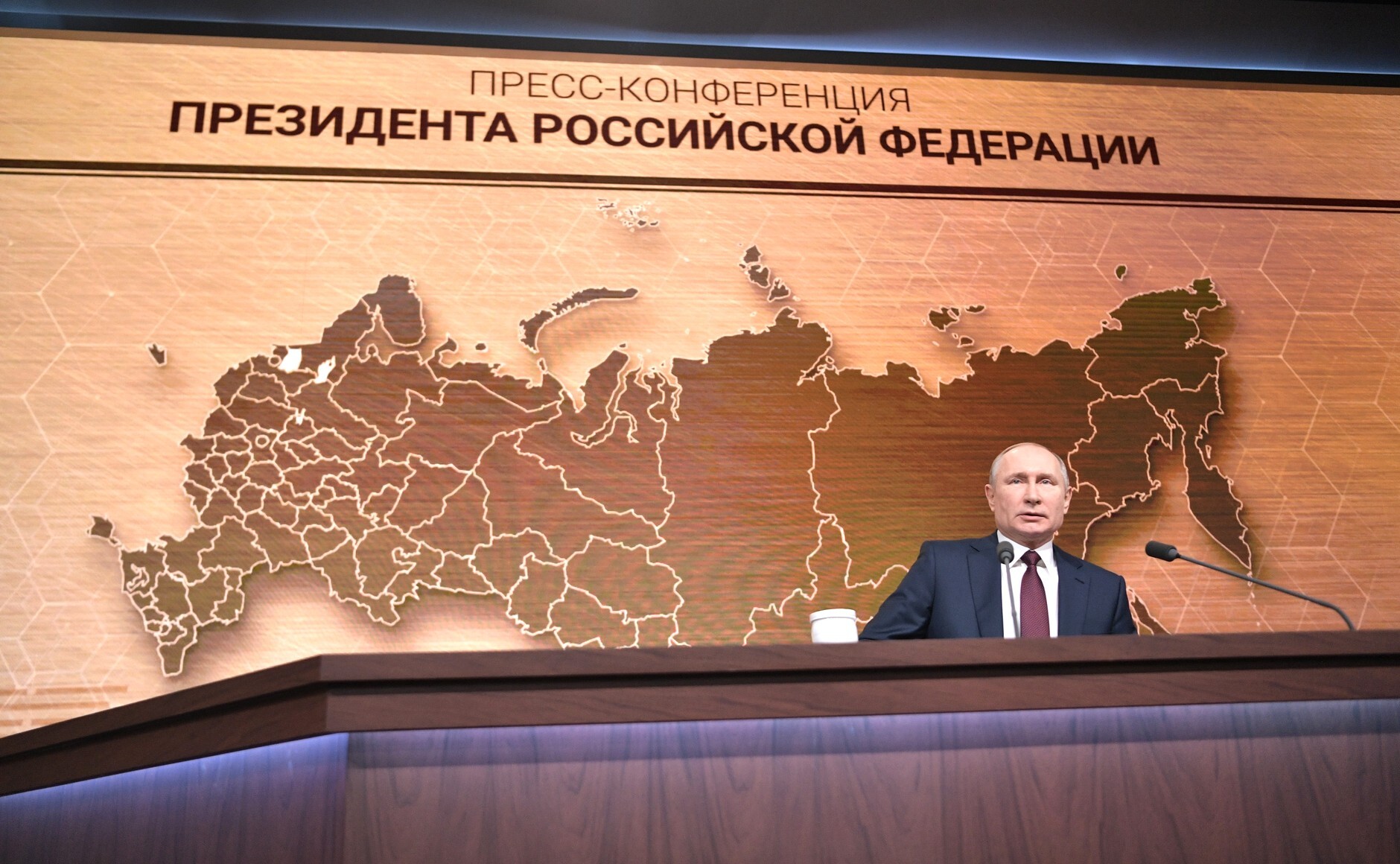 Kremlin photo.
Kremlin photo.
New Year, New Union State? Russia Ramps Up Pressure on Belarus
Sunday, several dozen Belarusian protestors assembled in downtown Minsk’s October Square to express dissent for cooperative efforts between their President, Alexander Lukashenko, and Vladimir Putin. Belarus, a country heavily dependent on Russian oil and subsidies, has been a power projection target for Russia since Putin’s rise. In recent weeks, Putin ramped up the pressure on Lukashenko to move forward on their 1999 Agreement on Establishment of the Union State of Belarus and Russia.
The Agreement, which according to Belarus aims to accomplish democratic development, establish a single economic and customs area, and pursue their agreed foreign, defense, and social policies, among other goals, has become a Russian tool for keeping Belarus under its geopolitical heel. The Russian interpretation is that the Agreement will eventually unify the two countries entirely.
Russia’s main tactic so far is to chip away at the issue of oil and gas, which has always been the main “sticking point” in the two countries’ negotiations. As Belarus has been heavily reliant on cheap Russian gas and oil, Putin recently conditioned the continuation of those spoils on the progression of their union state agreement. In their 31-item integration roadmap, the issues of oil, gas, and taxation seem to keep coming up, according to the Belarusian Telegraph Agency, a state-run news organization.
As the last dictator left in Europe, it is highly unlikely that Lukashenko will allow Russia to simply swallow Belarus as it did Crimea, even given the issues with upholding gas and oil prices. This echoes the concerns of some of the protestors in Minsk—many of them held signs that read “First Crimea, then Belarus.” While the military and cultural ties between Russia and Belarus are strong, Lukashenko’s grip on Belarus is iron-tight and the aforementioned protests signal the opinion of the public against Russian integration. Lukashenko has made it clear he has no problem standing up to Russia. The surrender of their sovereign state will “never happen while I’m in charge,” he quipped in early December. “It’s our country. We are sovereign and independent.” Last week, Lukashenko even went so far as to say “Russia is a part of Belarus.”
Standing behind Lukashenko’s refusal to become a victim of Russian power projection efforts is the entire international community, notably NATO. This is largely because heavier Russian influence in Belarus would put “Putin’s political and military power within quick striking distance of a vulnerable part of the NATO alliance.” Additionally, due to the location of Russian exclave Kaliningrad, Russian expansion into Belarus would essentially cut the Baltic states off from NATO territory. Putin’s tenure in positions of power could also be expanded past 2024, when he will constitutionally have to leave his current Presidential office.
Lukashenko, then, is in a strong geopolitical position. While he’s getting bullied by Russia on gas and oil prices, he knows that Putin only has a few other political moves to make short of military intervention, given the international community’s support of Belarus’ continued sovereignty. Lukashenko is even actively utilizing the support of the international community—he’s already taken advantage of thawing U.S. relations and Chinese loans to attempt to better the Belarusian economy. Foreign Policy also notes that Russia is struggling to condemn China on its efforts to help Belarus maintain some degree of self-sufficiency because Moscow is currently attempting to better its relations with Beijing.
In terms of action from U.S. diplomats, this issue poses an opportunity to further John Bolton’s efforts to thaw relations with Belarus, as well as explore methods of implementing more sustainable energy sources in Central and Eastern Europe. Underlined in a December article by ASP COO Andrew Holland, the recurring issue in Europe has been an overdependence on Russian energy sources combined with ill-suited political efforts to address this overdependence. To quote Holland, “energy security comes from a diversity of supply options—and is not simply about percentages of import dependence.” Given the complication of Belarusian overreliance on Russian energy subsidies, the U.S. should look to open things up with a seemingly welcoming Lukashenko and produce a viable solution to this multi-faceted issue.





